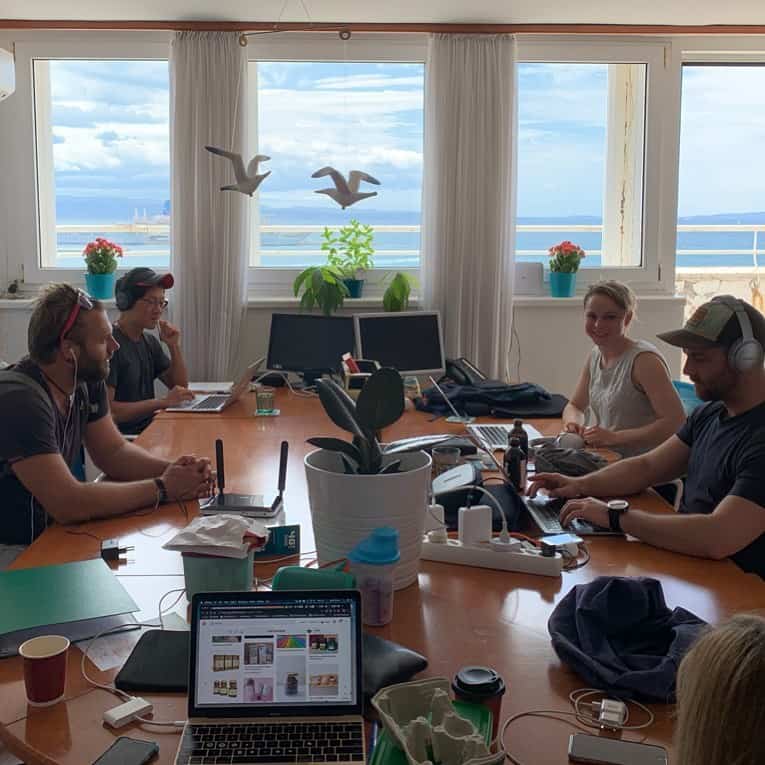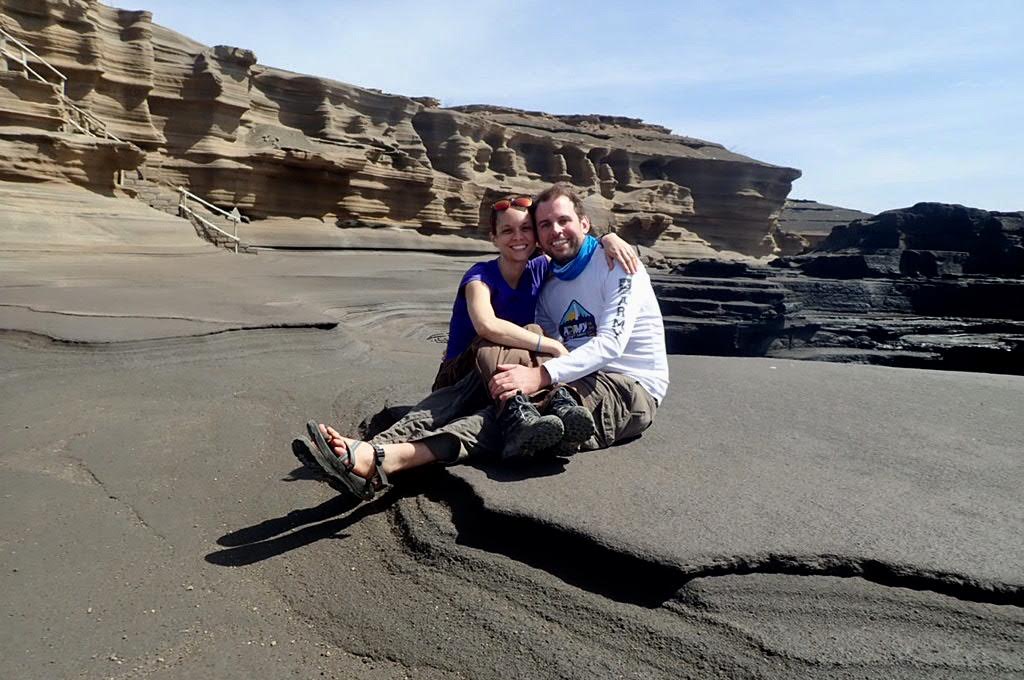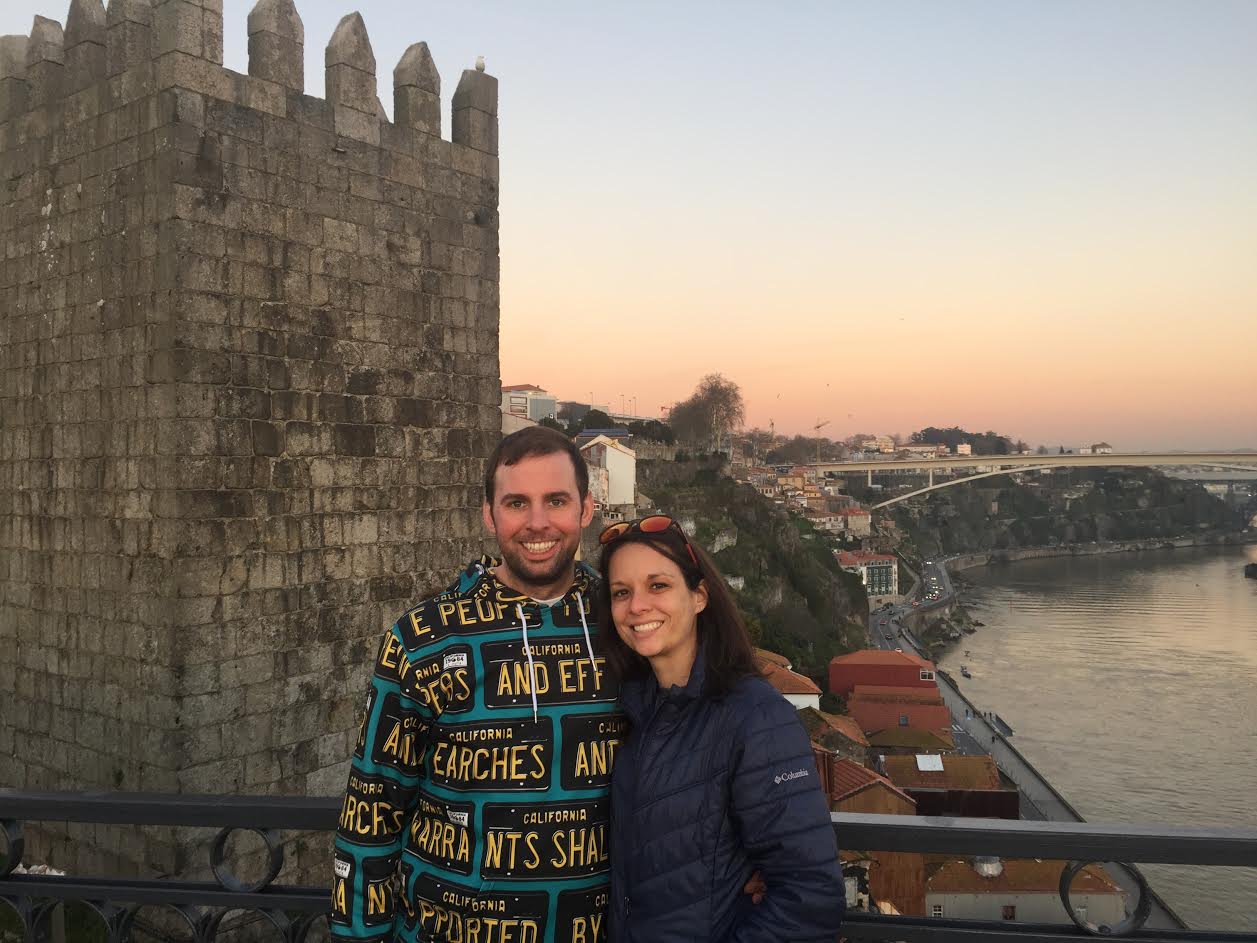April 5, 2020- As the number of digital nomads rises globally, some are choosing to spend some of their time in Croatia. Continuing our TCN series meeting international digital nomads calling Croatia their temporary home. Meet Mike and Tara Shubbuck from Washingon DC but now in Zagreb.
As recently featured on TCN, the world is projected to have a billion digital nomads by 2035, people from all over the world doing all manner of jobs and business with one thing in common – a flexible, mobile workplace connected to the Internet. If even a fracture of that number becomes a reality, the economic opportunity for countries which can attract these wealth-generating individuals has the potential to dwarf Croatia’s current tourism revenues. And there are few countries better placed than Croatia to take advantage. Safe, beautiful, great gourmet scene, top tourist destination, English is widely spoken, well connected to other destinations, and a superb lifestyle.

In order to look at the issue in more detail, we have decided to look at some of the digital nomads who have Croatia in their lifestyle plan, and to find out why Croatia, what Croatia offers, and what are the things that countries should be looking out for to take advantage of this economic opportunity. I am very grateful to Tanja Polegubic from Split’s waterfront co-working space, Saltwater in Split (see location below) for her help in connecting me to various digital nomads using her space.
Our next digital nomads in Croatia are Tara Shubbuck and partner Mike, currently in Zagreb, a long way from home in Washingon DC.

You are one of a growing number of digital nomads. Tell us briefly who you are and what you do.
We’re Tara and Mike, a married couple in our thirties from Washington, DC. At the end of 2019, we split off from our location-dependent jobs to pursue a fully remote lifestyle. Over the past four years, Tara created a side business doing writing work mostly for Skyscanner and The Washington Post (https://tarashubbuck.com). Once the frequency of projects reached a sustainable level, we decided that 2019 was the right time to start that transition to become digital nomads. We ended 2019 with Tara leaving her full-time marketing job to focus on her freelance work, while Mike transitioned to being a fully remote technical writer and trainer.
Working from your laptop rather than in an office seems like the dream lifestyle. What are the main pros and cons?
We’re still new to the digital nomad lifestyle, but one thing that has been really nice is living in a time zone ahead of those we work with. We’re more night owls than early birds, so we tend to stay up later anyway. This frees up the morning for personal activities, and then by lunchtime, those we work with are starting to sign online for the day.
Another major perk of this lifestyle (prior to the coronavirus pandemic lockdown!) is that you are, in a way, always on vacation. You can move whenever you want a change of scenery, and what you pay for housing, food, etc. are your standard costs of living, not additional expenses like those you would incur when you take a vacation away from your permanent residence. And because of that, we can select destinations that have a lower cost of living compared to the United States, and particularly DC, where rent and activities are expensive.

As far as cons go, both of us are social people, so not being surrounded by friendly coworkers all day is a bit of a negative. We had become really good friends with some of our former coworkers, so reduced socializing has definitely been difficult for us. We arrived in Croatia just days before the country closed its borders to foreigners and then shut down essential businesses due to the pandemic, so we haven’t had the opportunity to meet locals or other expats here. We’ve been doing regular happy hour video chats with friends and family, so that’s filled the void a little.
The lack of job security that comes with freelancing is also a con. Due to the current pandemic and the economic upheaval it’s caused, Tara’s work has been drastically reduced. Her assignment load has fluctuated over the years, so we already knew how volatile this line of work could be. It’s something we’ve prepared for, and anyone thinking of becoming a digital nomad should do the same. Creating a safety net for yourself is not optional. We wrote a lot about budgeting and saving for long-term travel in a book that we self-published a few years ago called Create Your Escape: A Practical Guide for Planning Long-Term Travel (more at http://createyourescape.today/).
Laptop living gives you the freedom to travel and choose your place to live. Where are the global hot spots currently for digital nomads?
If you put the pandemic aside, our plan for this remote work lifestyle was not necessarily to travel to cities that are set up perfectly for digital nomads. When we set our minds to being location independent, we had a strong desire to live in cities we had visited before and fell in love with, like Zagreb.
From 2012-2013, we took a career break and traveled the world (blogging about it at https://twotravelaholics.com). Along the way, we noted which cities we could see ourselves living in and promised each other we’d return. So that’s what we started out doing, first in Portugal and now Croatia. Others that we’d like to return to include Amsterdam, Singapore, Bangkok, Ho Chi Minh City, Cape Town, and Vancouver. When the pandemic subsides and it becomes possible to travel freely again, we want to explore more of Eastern Europe (and Croatia, if we’ll have the opportunity for intercity travel before our tourist visa expires).
You chose Croatia and specifically Zagreb – why?
As mentioned, it’s one of the locations we fell in love with years ago. The people are friendly, there are many opportunities for outdoor activities, there are rich culture and historic sites, and you really can’t beat the food, beer and wine. We lived for the craft beer scene in the US, and while it’s different abroad, we haven’t had a Croatian beer that we didn’t like (we were introduced to Medvedgrad nearly a decade ago and still love its brews).
What are the most important things a destination should offer to be most compatible for the digital nomad lifestyle, apart from that all-important good WiFi?
The answer is going to change from person to person. We don’t want to put ourselves at risk, so safety and comfort are top priorities. After that, we gravitate toward larger cities. We love city life, being able to attend events, go to concerts, explore museums, and get lost in the winding streets of unfamiliar neighborhoods. Great cuisine and local beer and wine are important, too, of course.
We’ve been in coworking spaces in DC, but we haven’t had the opportunity to try them abroad yet. The concept certainly appeals to the digital nomad lifestyle. There’s the intermingling of businesses, work equipment, social interaction, and, of course, just the ability to work in an atmosphere where you can be productive that is outside of a café or where you are currently living.
What are the competitive advantages that Croatia has to attract more digital nomads?
Three things that make Croatia a very attractive destination for digital nomads are safety, affordability, and the fact that many locals speak English. We always want to learn as much of the local language as we can whenever we travel, but you’re only going to be so proficient even after a few months of trying your best.
One thing that destinations can supply that would attract digital nomads and make their transition easier is a centralized website that houses relevant resources like apartment rentals, coworking space information, an events calendar, and instructions for a visa extension. All this information is scattered across the web—some sites in the local language and others with an English option—so the more hurdles you introduce, the more likely you are to lose potential visitors. Digital nomads are going to be spending a lot of time and money in your city—not to mention posting about it on social media—so making an investment in attracting them should pay off pretty quickly.
Connect with Tara and Mike! They’d love to chat with other TCN readers (https://www.linkedin.com/in/mikeshubbuck/ and https://www.linkedin.com/in/tarashubbuck/).
To learn more about Croatia for the digital nomad, check out the Total Croatia Digital Nomad guide.
Are you a digital nomad in Croatia who would like to be featured in this series? Please contact us on news@total-croatia-news.com Subject Nomad













